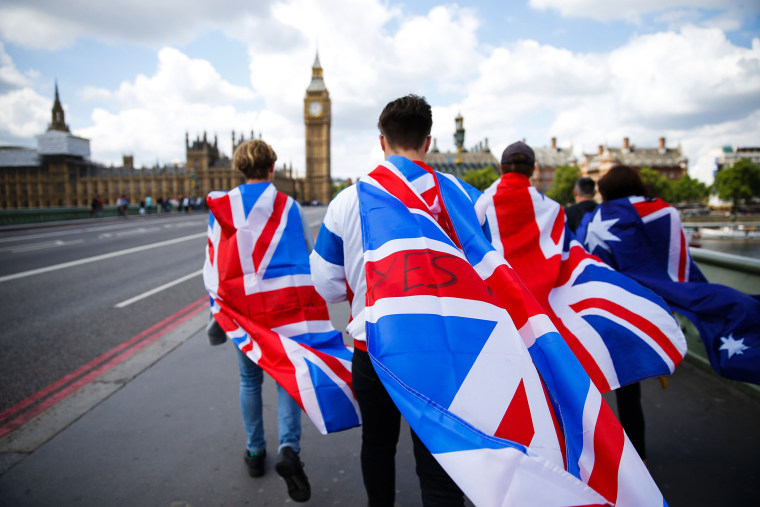Following the Brexit referendum, the United Kingdom has seen a sharp uptick in reported hate incidents and hate crimes. The Crown Prosecution Service defines a hate incident as “any incident which the victim, or anyone else, thinks is based on someone’s prejudice towards them because of their race, religion, sexual orientation, disability or because they are transgender.”
Hate incidents have been recorded in real-time on social media.
British journalist Jon Snow tweeted on June 28: “Young woman in the street stops me to tell me she’s just been verbally abused for speaking Spanish on her phone.”
This Facebook post went viral
London’s Metropolitan Police received 599 reports of “race hate crimes” in the capital between June 24- the day the results were announced- and July 2, an average of 67 reported incidents day- almost 200% the usual daily average, according to figures reported on The Guardian.
Across the U.K., more than 3,000 hate crimes and incidents were reported in England, Wales and Northern Island from June 16 to June 30, according to the National Police Chiefs’ Council. The number relates to incidents reported on the True Vision website, a site that allows citizens to report crime. It is a 42 percent increase from the same time period the year before.
To help combat hate, the Equality and Human Rights Commission petitioned the United Kingdom to review its laws on hate crimes in a new report, “Race Rights in the UK.”
In the report submitted to the United Nations, the Commission asks government officials to prove the effectiveness of its strategies to combat the crimes and to “work with criminal justice agencies to build on the research on hate crime motivations and develop new preventive measures as a result.”
Some British officials have already started taking action. Earlier this month, new London mayor Sadiq Khan- the first Muslim to be elected mayor of a Western capital- joined forces with the police department for the #WeStandTogether campaign, which promotes unity and provides support for victims of hate crimes.
“I simply will not tolerate hate crimes of any form, anywhere in London,” Khan said. “We must stand together and anyone who sees or is targeted by abusive behaviour should report it to the police immediately.”
Story By The Last Word intern Mariela Patron
